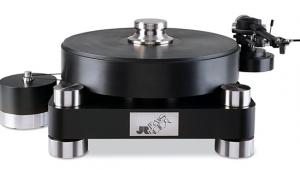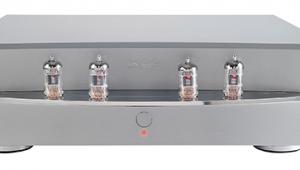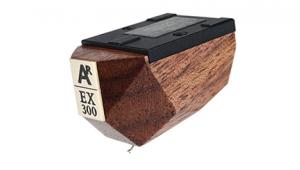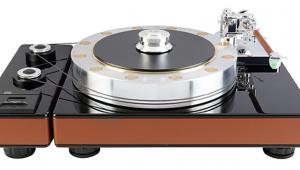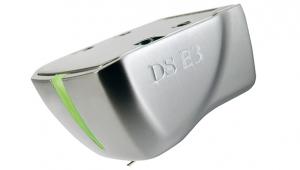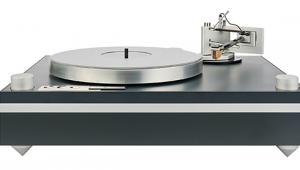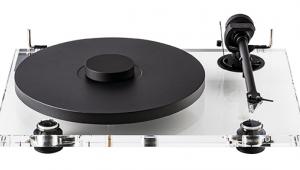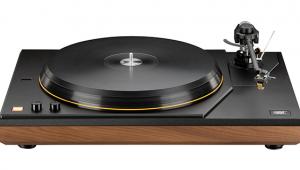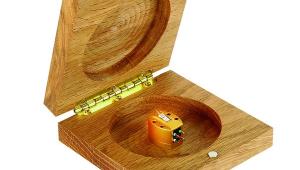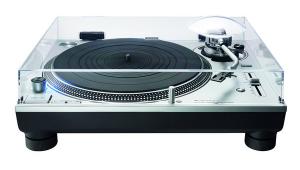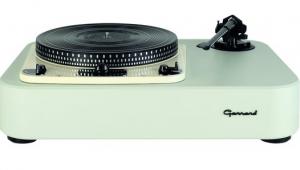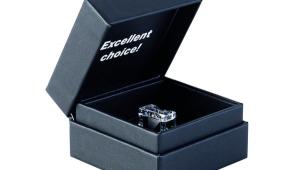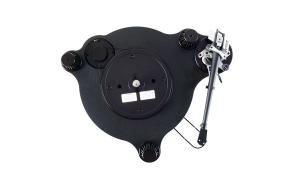MoFi StudioDeck+ Turntable Package
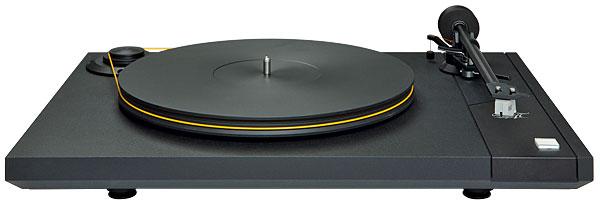
 Mobile Fidelity, champion of audiophile vinyl, has now wrapped up an EISA Award for its flagship UltraDeck – does the more affordable StudioDeck give much away?
Mobile Fidelity, champion of audiophile vinyl, has now wrapped up an EISA Award for its flagship UltraDeck – does the more affordable StudioDeck give much away?
It might seem that we played this one in reverse, reviewing Mobile Fidelity's dearer UltraDeck turntable first [HFN Jul '19], before working backward. A buzz in the underground, however, suggested that MoFi's less-costly, entry-level StudioDeck might be something of a 'sweet spot' candidate, so what could have been an anti-climax is anything but.
That dearer package came in at £2499, while the StudioDeck costs £1199 without cartridge, or £1349 if fitted with the StudioTracker MM cartridge, as here in StudioDeck+ guise. The MM will set you back £199, so that's a discount of £50, or the price of MoFi's heavyweight vibration-damping record clamp...
As has been observed before, MoFi is reviving a practice that dates back to the early days of music-in-the-home, when record labels also produced playback equipment. EMI, Decca, RCA – they were all at it because it made sense. MoFi's story is equally integrated into the audiophile milieu, because the company's experience extends to the entire experience.
Music Direct
For those unaware of it, Mobile Fidelity is part of the empire that includes Music Direct, one of the USA's largest online suppliers of separates. It handles a slew of turntables and cartridges as well as amps and speakers, from brands such as Marantz, Chord, iFi Audio, AudioQuest and others. Hence the ease in which what is ostensibly a record label moved into hardware manufacture. As such, it had to be careful when introducing its own turntables, and so far, MoFi has managed not to aggravate its other record deck suppliers, including market-leaders Pro-Ject.
To judge just how serious it is, MoFi eschewed the mere slapping of its logo on a generic deck or two, and designed its own. Says Vice-President Josh Bizar, 'The MoFi StudioDeck was the first turntable we designed. The goal was to honour the work of the Mobile Fidelity mastering lab, and make a turntable worthy of our record label'. As with the UltraDeck, Allen Perkins of Immedia fame was the lead engineer on the StudioDeck project. So, too, is Michael Latvis of Harmonic Resolution Systems, who developed both decks' special feet and the optional MoFi 'superheavyweight' record weight.
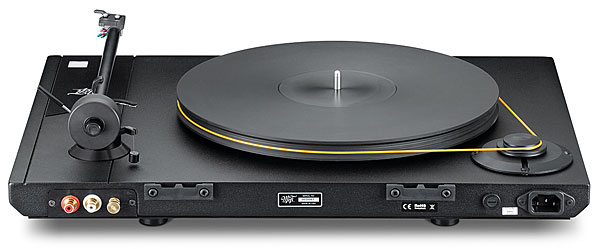
While we opted for the basic cartridge, the StudioDeck can be ordered with any of the three MoFi Electronics Trackers, factory-installed for the end user. Crucially, though, the user is not bound to them because the StudioDeck still has all the same tonearm adjustability as the UltraDeck's arm, so customers can fit cartridges of their choice.
It is not the job of the reviewer to 'protect' a manufacturer by always preferring the more expensive of two products. So a dearer model may offer superior performance, but a less-expensive model may deliver better value for money – and these are two different concerns.
A Deck To Impress
Contrasting the StudioDeck and UltraDeck turntables illustrates this phenomenon with vivid results, and the clues are in the terse, 'nutshell' description which describes the two succinctly as: same bearing (different thrust pad), motor and arm (different arm wiring), thinner platter and simpler plinth construction for the StudioDeck. Immediately that tells cost-conscious buyers how little of consequence is sacrificed for a substantial saving in monetary terms, especially if the bearing, motor and arm are deemed to be the elements that have the greatest impact on overall performance (if admittedly in the most simplistic terms).
Looking at the constituent parts in detail, the StudioDeck uses the same ultra-quiet US-made AC-synchronous Hurst Motor, 10in aluminium gimbal-bearing tonearm, Delrin platter material and dedicated anti-vibration HRS feet, which are calibrated here to suit the lighter plinth. The extra £1k for the UltraDeck pays for a thicker platter ('a very expensive part to machine,' says Josh Bizar), while its plinth is more sophisticated thanks to additional layers of constrained-layer damping; a single aluminium damping plate is used to add mass and dissipate vibration on the StudioDeck plinth. The UltraDeck's arm is wired with more expensive Cardas PSC cable, while the StudioDeck gets OF-copper wiring.
Shared though the bearings are, the StudioDeck's has a Teflon thrust plate while a harder sapphire is used in the UltraDeck. Weight drops to 8.6kg against the UltraDeck's 10.5kg but the StudioDeck's plinth looks less fussy thanks to fewer contrasting surfaces. However, the shared gene pool is obvious in style, colour and common footprints of 500x362mm (wd).
Thus, having looked at the StudioDeck vs UltraDeck, point by point, the observer is struck by just what a bargain the former appears to be – whether or not you factor in a further savings by purchasing a MoFi cartridge at the same time.


